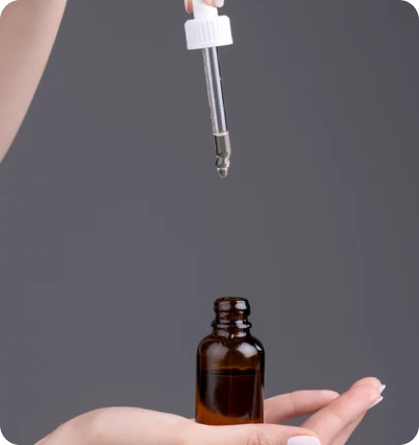
RU vs Finasteride Which is Better for Preventing Hair Loss?
Share
RU58841 vs Finasteride: Which is Better for Preventing Hair Loss? Hair loss is a common issue that affects both men and women.
RU58841 vs Finasteride: Which is Better for Preventing Hair Loss?
Hair loss is a common issue that affects both men and women. While there are many treatment options available, two of the most popular are RU58841 and finasteride. In this blog post, we'll compare and contrast these two hair loss prevention treatments to help you determine which one may be better for your needs.
What is RU58841?
RU58841 is a topical anti-androgen that was originally developed as a treatment for prostate cancer. It works by blocking androgens like testosterone and DHT from binding to receptors in the scalp. Reducing DHT binding is key for preventing hair loss, as DHT is the main culprit behind pattern baldness.
RU58841 is applied topically to the scalp once or twice per day. The benefit of using a topical treatment is that it targets the scalp directly, without having systematic effects on hormones like oral medications. RU58841 users often mix the compound into a solution with a carrier oil or liquid to make applying it to the scalp easier.
What is Finasteride?
Finasteride is an oral medication that was also originally developed for treating prostate enlargement. It acts by decreasing the production of DHT in the body by blocking the enzyme 5-alpha reductase. This reduces the amount of DHT overall, including the amount that can bind to hair follicles on the scalp.
Finasteride is taken in pill form, usually 1mg per day. It works systemically to lower DHT levels throughout the body. While it’s effective for hair loss when taken daily, it can have sexual side effects in some men due to altering hormone levels.
RU58841 vs. Finasteride: The Differences
Now that we’ve covered the basics of how each treatment works, let’s compare and contrast some key points:
-
Application method: RU58841 is a topical, while finasteride is an oral pill. The topical application targets the scalp more directly.
-
DHT reduction: Both block DHT binding, but finasteride reduces systemic DHT levels. RU58841 is focused solely on the scalp.
-
Side effects: Topical RU58841 has minimal side effects, while finasteride can cause sexual side effects in some men.
-
Convenience: Applying RU58841 daily takes more time and effort than popping a finasteride pill.
-
Cost: RU58841 costs more, especially when compounded into a solution. Finasteride is available as an inexpensive generic.
-
Results: Both are effective, but some users report better regrowth from RU58841. More research is still needed.
So Which is Better for Hair Loss?
Based on the comparisons above, RU58841 seems to have some advantages over finasteride, especially when it comes to side effects and results. The topical application method targets the scalp more precisely without altering systemic hormone levels.
However, finasteride is much more convenient to take and is more affordable as a generic. It also has years more of clinical studies showing its efficacy.
Ultimately, either treatment can be effective depending on the individual. For those concerned about sexual side effects or who want better scalp targeting, RU58841 may be the better choice. For those who want the most convenient and affordable option, finasteride may be preferred.
As with any treatment, it’s best to speak with a dermatologist to determine which option is right for your specific hair loss goals and concerns. While drug treatments are helpful, also remember that lifestyle measures like reducing stress, eating a balanced diet, and using hair-friendly products can support healthy hair growth.
Conclusion:
Both RU58841 and finasteride are useful anti-androgens for preventing hair loss. RU58841 provides very localized DHT blockage with minimal side effects, while finasteride is systemic, more affordable, but has a higher risk of sexual side effects. Speak to a doctor to find the best treatment regimen for your needs. Consistent use of either medication, along with healthy lifestyle choices, can help keep your hair healthy and full.


